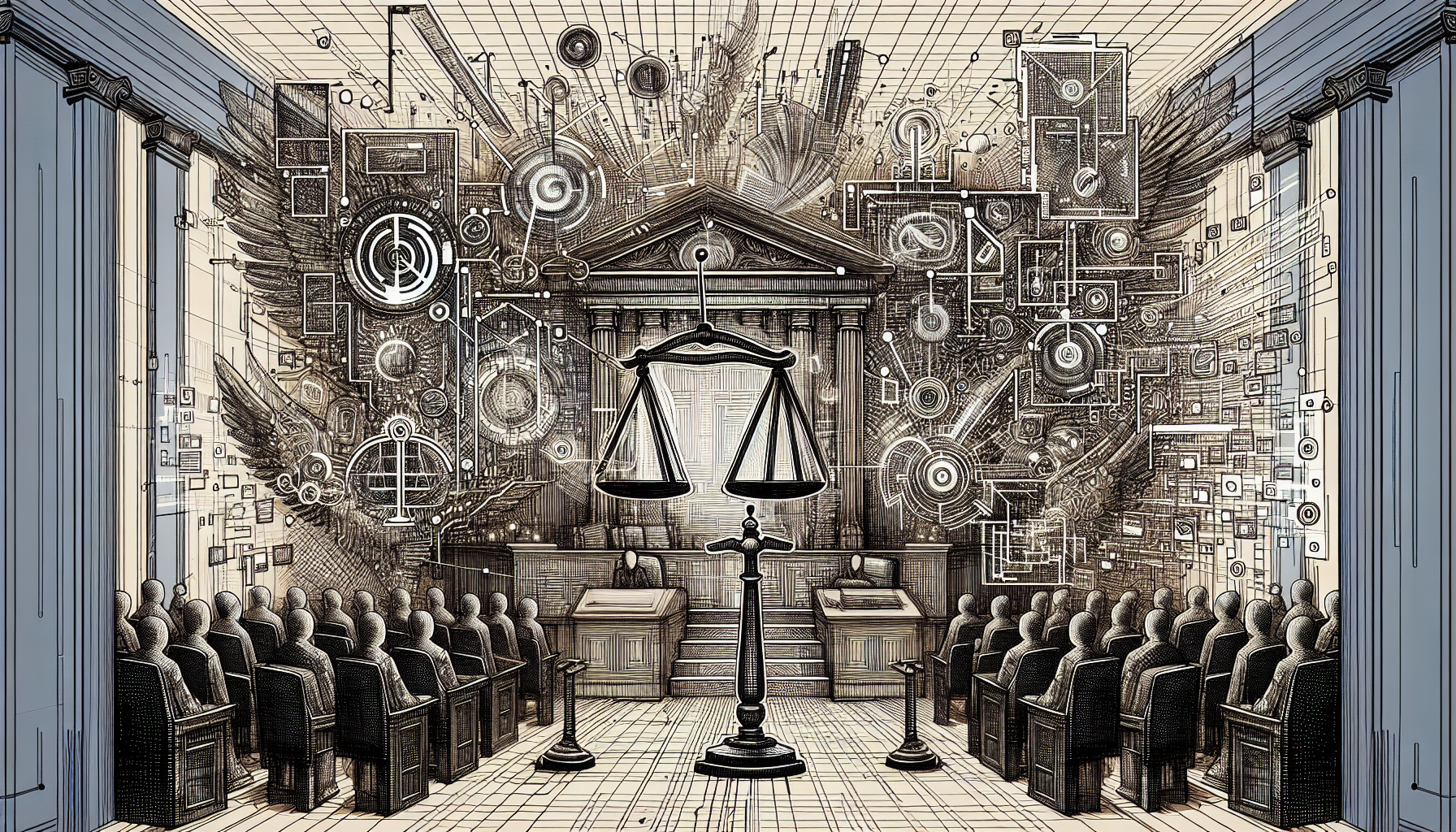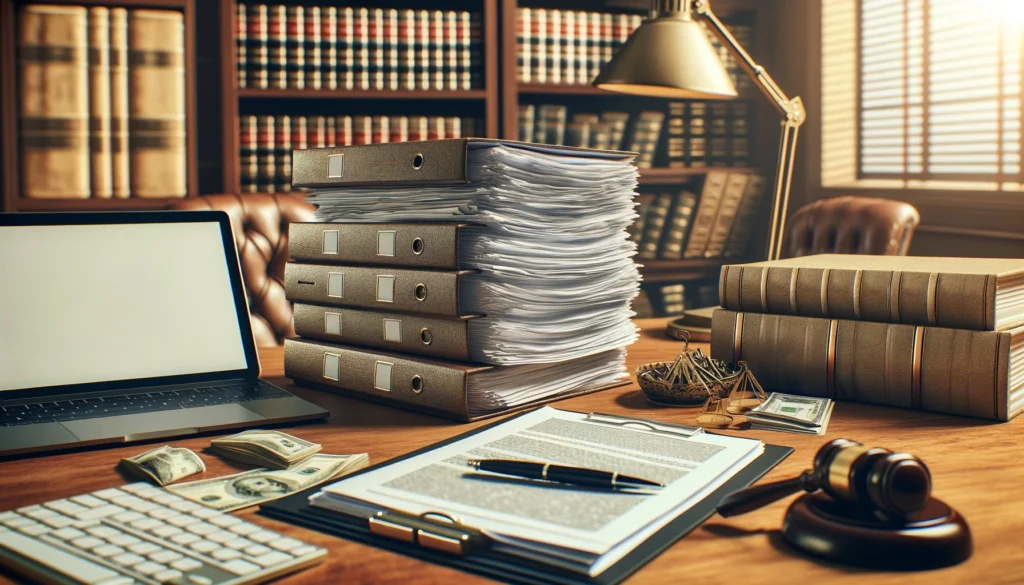
Opening Arguments: Redefining Paralegal Workflows
The transformative potential of artificial intelligence (AI) in legal practices is becoming increasingly apparent. Among the most compelling advancements is the integration of AI-driven tools such as ChatGPT into legal workflows. For personal injury appeals, where precision and efficiency are paramount, these technologies are revolutionizing traditional processes.
Personal injury appeals demand meticulous attention to detail and timely submissions to ensure favorable outcomes. As the legal landscape evolves, harnessing AI like ChatGPT can significantly enhance the practices of paralegals and legal assistants, thereby optimizing overall workflow and boosting productivity.
The New Legal Assistant: Understanding ChatGPT
ChatGPT, developed by OpenAI, is an advanced language model capable of understanding and generating human-like text. Its application within the legal domain offers a range of functionalities, from drafting documents to conducting research. By automating routine tasks, legal professionals can allocate more time to strategizing and case analysis.
It’s essential to acknowledge the limitations of ChatGPT. While it excels in generating and refining text, it should be used under the guidance of a seasoned attorney to ensure compliance with legal standards and prevent potential pitfalls. Misconceptions around AI typically include fears of job displacement or loss of control over the legal narrative. However, when used as a supportive tool, ChatGPT complements human expertise rather than replacing it.
This understanding paves the way for effective utilization, where prompt specificity becomes the key to unlocking ChatGPT’s full potential.
Also read:
Prompting Perfection: Crafting the Ideal Input
The effectiveness of ChatGPT heavily relies on the quality of the prompts provided. Crafting specific and detailed inputs is crucial to obtain accurate and relevant outputs. This necessitates understanding how to frame questions and requests effectively.
Some strategies include:
- Hypothetical Scenarios: Use hypothetical cases to elicit well-rounded responses. For instance, “Draft a motion for a hypothetical personal injury case involving a slip and fall in a supermarket.”
- Layering Complex Legal Concepts: Break down intricate legal issues into comprehensible segments. For example, “Explain the principle of res ipsa loquitur in the context of personal injury law.”
Creative and targeted questioning leads to more specific, actionable insights, which can then be integrated into legal documents and research.
With well-crafted prompts, the accuracy and relevance of ChatGPT’s outputs become invaluable for legal document drafting.
Also read:
Drafting Documents: Speed Meets Accuracy
Leveraging ChatGPT for drafting legal documents can significantly reduce time spent on routine paperwork. The tool is adept at generating initial drafts of complaints, motions, briefs, and responses with remarkable speed and precision.
Consider the following applications:
- Complaints and Motions: “Draft a complaint for a personal injury case involving a car accident where the plaintiff sustained a cervical spine injury.”
- Briefs and Responses: “Generate a response brief countering a defendant’s motion to dismiss in a personal injury lawsuit based on insufficient evidence.”
Furthermore, existing drafts can be refined and enhanced using ChatGPT, ensuring thoroughness and coherency. Paralegals can request, “Enhance this draft to emphasize the plaintiff’s sustained injuries and include relevant case law references.” The result is a polished, comprehensive document ready for attorney review.
Beyond drafting, ChatGPT’s capabilities extend to streamlining legal research, thereby enhancing productivity even further.
Also read:
Fact-Finding Fundamentals: Streamlining Research
In the realm of legal research, ChatGPT proves to be a game-changer. It facilitates quicker, more comprehensive fact-finding missions by providing concise summaries and insights based on vast datasets.
To optimize research tasks, legal professionals can employ techniques such as:
- Quick Queries: “Summarize the latest case law on personal injury claims involving defective products.”
- Cross-Referencing Information: “Cross-reference the ruling in Smith v. Jones with precedent cases from the past decade.”
The prompt specificity ensures that ChatGPT delivers relevant and actionable information, which can then be verified and cross-referenced with primary legal sources. This enhances the credibility and reliability of the research findings.
Next, we’ll delve into strategies for crafting compelling legal arguments leveraging AI-generated content.
Also read:
Building Persuasive Arguments: Strategies for Success
To build persuasive legal arguments, integrating AI-generated content can bolster the logical flow and robustness of your case. By using ChatGPT, attorneys can craft compelling narratives that resonate with judges and opposing counsel.
Strategies include:
- Logical Flow: “Construct a logical argument for why the defendant is liable for damages due to negligence in a slip-and-fall personal injury case.”
- Defense Mechanisms: “Provide counterarguments to potential defenses in a personal injury lawsuit involving workplace injury.”
These structured inputs ensure a well-rounded argument, emphasizing facts, evidence, and legal principles, ultimately enhancing the persuasiveness of your appeal.
With the persuasive prowess of AI, attention to ethical considerations becomes paramount.
Also read:
Ethics and AI: Navigating the Ethical Landscape
While harnessing AI in legal work, understanding the ethical landscape is crucial. Ensuring compliance with legal standards and maintaining client confidentiality are non-negotiable.
Best practices include regularly auditing AI-generated content, obtaining client consent for AI utilization, and constantly staying updated on emerging ethical guidelines and regulatory changes within the legal field.
Embracing ethical considerations ensures that AI serves as a valuable ally in the legal arena.
Also read:
Closing Statements: Integrating AI into Your Legal Practice
Incorporating AI like ChatGPT into legal practice offers immense benefits, from enhancing efficiency to refining legal documents and arguments. Continuous adaptation and learning are key to fully leveraging AI’s potential.
As the legal industry embraces these technological advancements, practitioners are empowered to deliver higher-quality services while maintaining the integrity and ethical standards of the profession.


